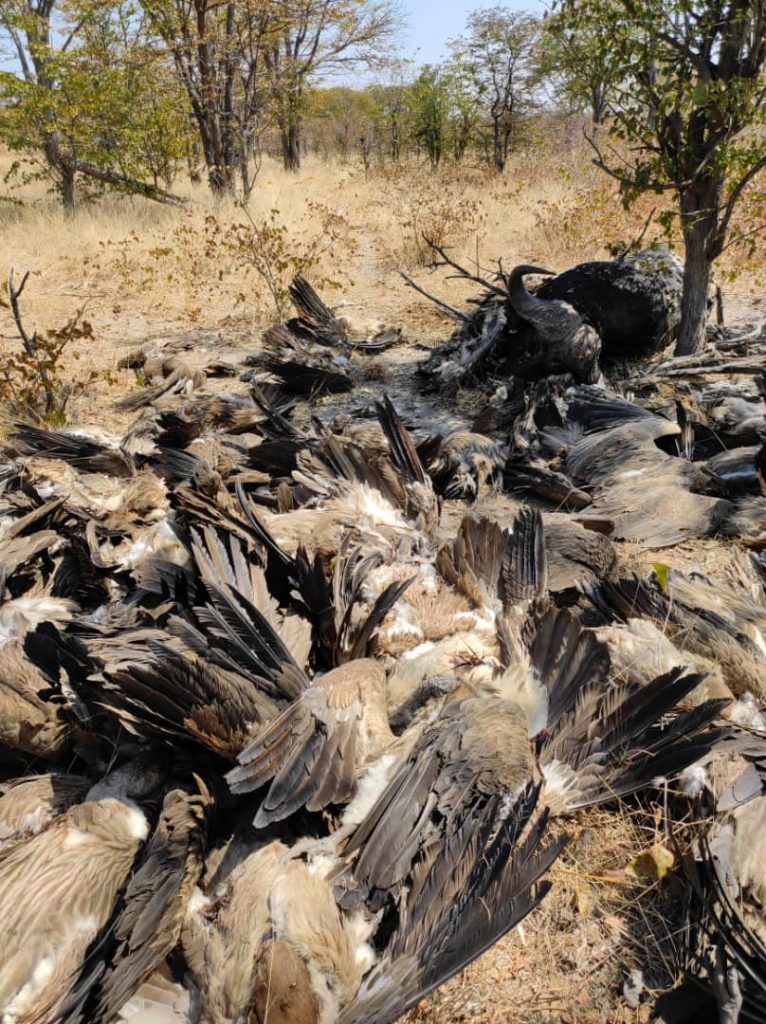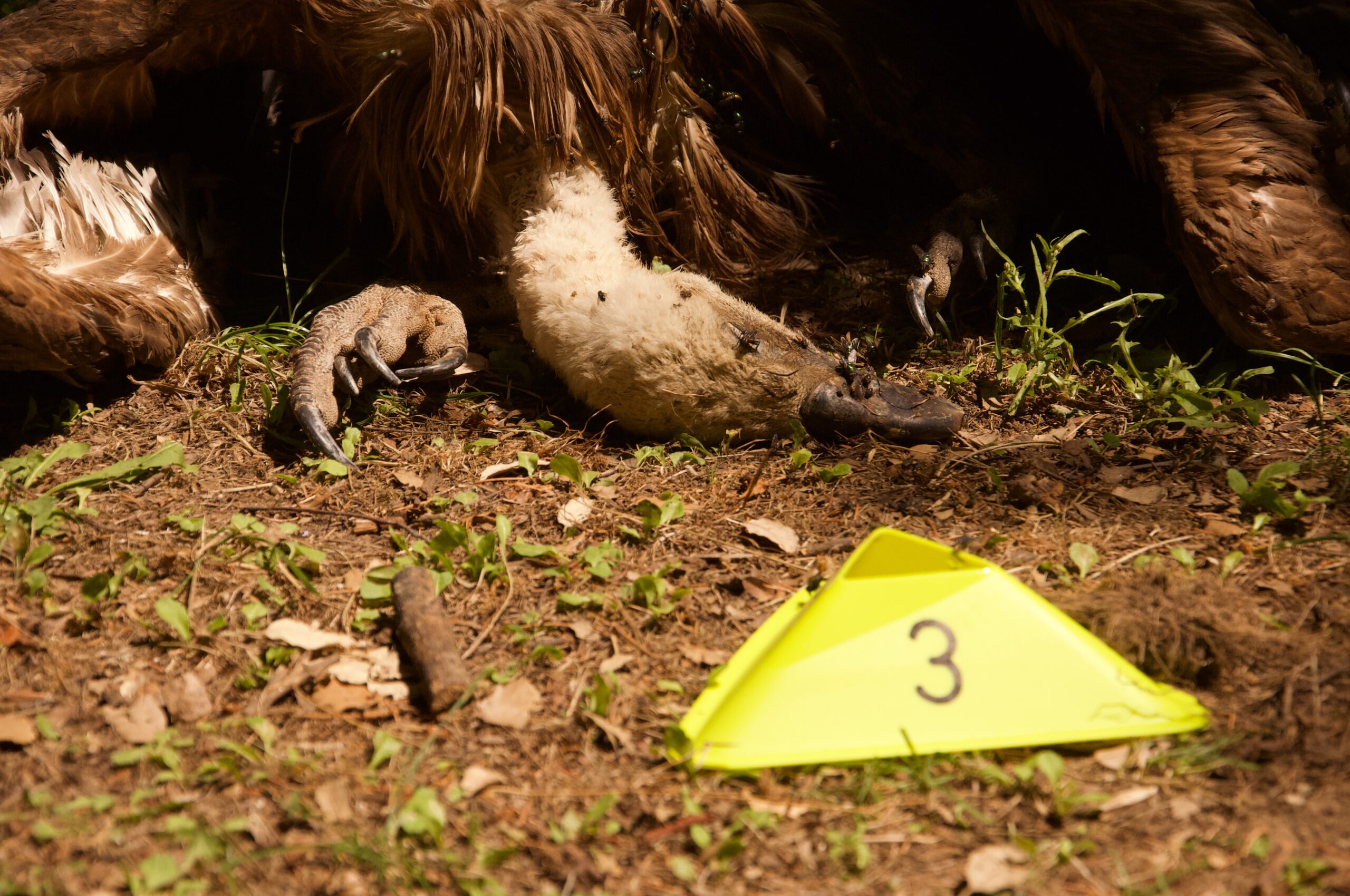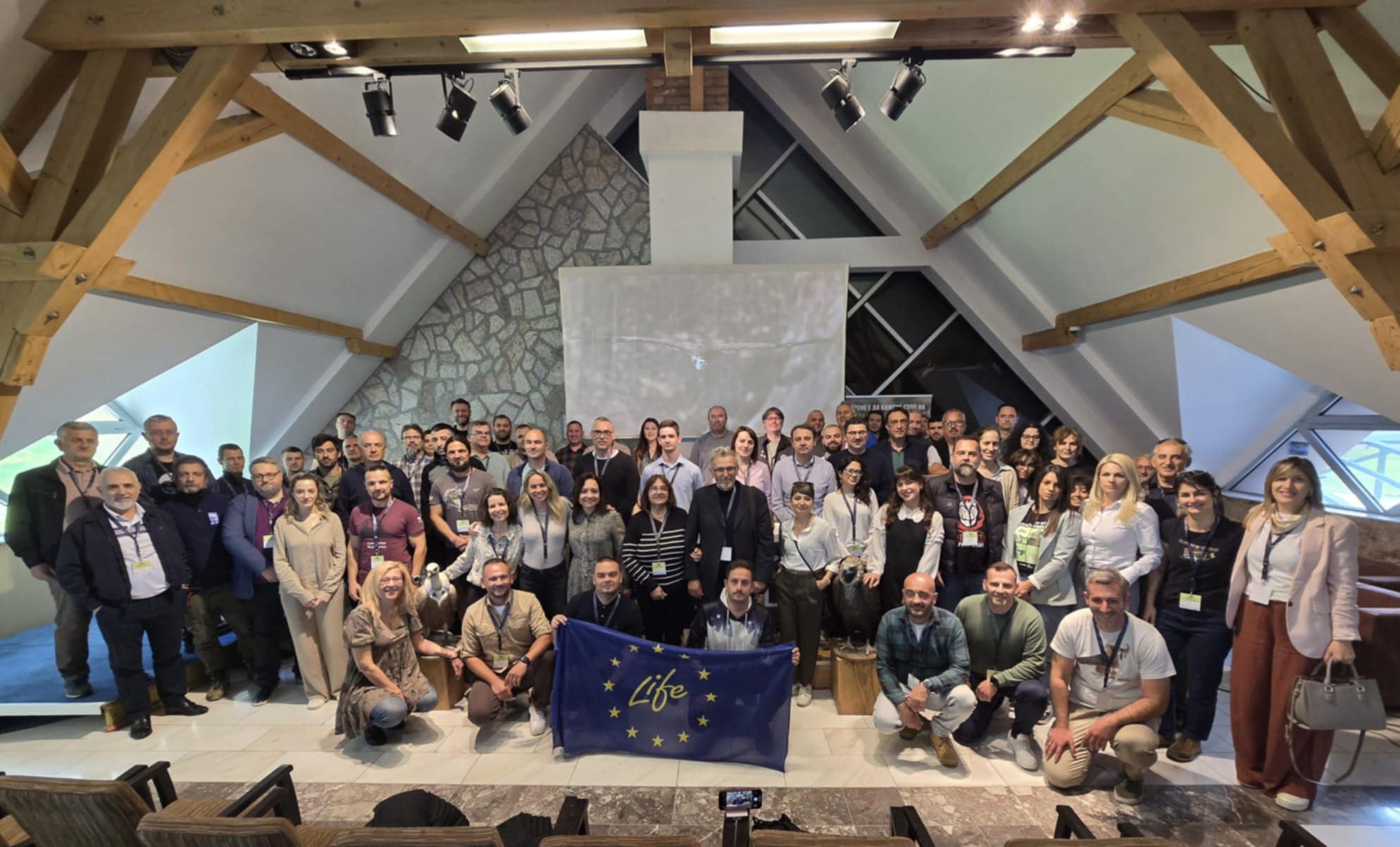
The poisoning crisis continues in Africa and vultures pay the price. Last week more than 150 vultures were seemingly targeted and poisoned in two separate incidents at Kruger National Park (South Africa) and Chobe (Botswana) during an especially critical period for the species. This scale of poisoning incidents in Africa drives the already threatened vulture species closer to extinction and must stop!
Vultures poisoned for their body parts
On Thursday, 11 August 2022, park rangers on patrol came upon the grim discovery of approximately 100 vulture carcasses in South Africa’s Kruger National Park. They also found several vultures clinging to life and managed to retrieve and transfer around 27 of them to a rehabilitation centre to receive treatment.
The next day, authorities became aware of another devastating case occurring further north. On Friday, they found more than 50 White-backed vultures (Gyps africanus), 12 were immature and the rest breeding adults, in Botswana’s northern Chobe district. Worryingly, this is not the only serious mass poisoning case in the region. In fact, one of the most massive vulture mortality events occurred in the Chobe game reserve back in 2019, with 537 vultures dying from poisoning.
In both of the recent cases, the vultures seemed to have died after feeding on a buffalo carcass laced with poison. Vultures are not typically the intended targets of poisoning, but based on the circumstances, it seems they were deliberately poisoned this time. Many vulture carcasses have been butchered, with their heads, feet and even organs removed. These signs indicate that belief-based use or African traditional medicine known as muti was the motive and suggest an increased demand for vulture parts, which is concerning. Investigations are now underway for both cases, and authorities have collected several samples to perform analysis, according to VulPro.
Mass poisoning cases in Africa cause adverse consequences for vultures
The repercussions of the latest incidents are vast, and not only because hundreds of vultures died within a couple of days. The breeding season is currently in full swing, with many vultures either laying eggs or going to lay eggs soon. Since a high proportion of the individuals affected were breeding adults and vultures tend to be monogamous, pairs may have been lost for good. Furthermore, it is unlikely chicks will survive even if one parent survived, considering that vultures rear in pairs.
African vulture populations cannot withstand such losses – they have declined by around 90% over the last 30 years, and poisoning plays a significant part in this negative trend. Today, seven of Africa’s vulture species are on the edge of extinction, with four species considered Critically Endangered while three other species are endangered.
Enforcement and awareness are crucial to combat poisoning
The Vulture Multi-species Action Plan (Vulture MsAP), co-developed by the Vulture Conservation Foundation (VCF) and endorsed by the Convention for Migratory Species (CMS), concludes that poison is vultures’ biggest threat worldwide and proposes an action plan to fight this threat.
It is crucial and urgent to mitigate this problem. Our African colleagues build capacities with local law enforcement authorities to help improve the management and investigation of such incidents. They also inform local communities about the hazards of using pesticides and other toxic chemicals for poison baits and raise awareness about the importance of vultures and the beneficial ecosystem services they provide.
Poisoning does not only pose a threat to vultures in Africa, but it is a global problem affecting other wild and domestic animals and even threatening public health. The VCF team is committed to protecting vultures from this severe threat and has been supporting activities in Africa and working on anti-poisoning actions in Europe for years now.



